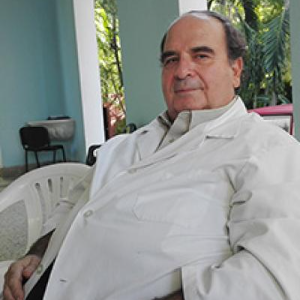Abstract:
I was a main expert in the case of Jahi McMath, who was diagnosed with brain death (BD). Nonetheless, ancillary tests performed nine months after the initial brain insult showed conservation of intracranial structures, EEG activity, and autonomic reactivity to the “Mother Talks” stimulus. She was clinically unarousable and unresponsive, without evidence of self-awareness or awareness of the environment. However, the total absence of brainstem reflexes and partial responsiveness rejected the possibility of a coma. Jahi did not have unresponsive wakefulness syndrome (UWS) because she was not in a wakefulness state and showed partial responsiveness. She could not be classified as a locked-in syndrome (LIS) patient either because LIS patients are wakeful and aware, and although quadriplegic, they fully or partially preserve brainstem reflexes, vertical eye movements, or blinking, and respire on their own. She was not in a minimally conscious state ( MCS ) because she did not preserve arousal and preserved awareness only partially. The CRS-R resulted in a very low score, incompatible with MCS patients. MCS patients fully or partially preserve brainstem reflexes and usually breathe independently. MCS has always been described as a transitional state between a coma and UWS, but it has never been reported in patients with all clinical BD findings. This case does not contradict the concept of BD but brings the need to use ancillary tests in BD again for discussion. I concluded that Jahi represented a new disorder of consciousness, non-previously described, which I have termed “responsive unawakefulness syndrome” (RUS).
Biography:
Dr. Calixto Machado graduated as MD in 1976. He continued his medical training to become a Specialist in Neurology and Clinical Neurophysiology, First Degree in 1980 and Second Degree in 1984. In 1990 he became the youngest Dr. in Sciences (Second Degree) in his country. Dr. Machado received clinical training in specialized neurology centers in Sweden, Italy, Austria, and the US. Dr. Machado has trained many medical students, neurology residents, fellows, and doctorate students in neurosciences from Cuba and the rest of the World. During the last 30 years, he has run many research protocols, such as brain death, coma, persistent vegetative states, and other disorders of consciousness, stroke, autism, autonomic nervous system, COVID-19, among others.
He joined Cuba to the WFN, and it appears within the Latin American Region with the name "Institute of Neurology and Neurosurgery." For many years I have attended the WFN conferences representing his country. He has over 600 peer-reviewed articles, book chapters, and seven books. His Book "Brain Death: A Reappraisal" has been recognized with great enthusiasm among neurologists, neurosurgeons, intensivists, and physicians specializing in transplants. He has organized eight International Symposia on Brain Death and Disorders of Consciousness in Havana since 1992, welcoming the main worldwide experts in this area. This is probably the Conference with more continuance in time in the World. In 1992, he was the first Cuban neurologist who was a member of the American Academy of Neurology (AAN), nominated as a Corresponding Fellow. He has been the President of the Organizing Committee of eight International Symposia on Brain Death and Disorders of Consciousness since the early '90s. During these symposia, he has organized many continuing education courses in neurology attended by Cuban, Latin-American, and US young neurologists.
He is the principal Professor of Neurology and Clinical Neurophysiology in this country. He has been the mentor of 57 physicians running their residency programs to become neurologists and 18 Ph.D. aspirants, many of them from Latin-American countries and the US. He has been awarded 25 times with the "Best Annual Scientific Medical Research in Cuba" and five years with the "Cuban Academy of Science Annual Award." In 2005 he was bestowed with the American Academy of Neurology "Lawrence McHenry Award." This was the first time that a Hispanic neurologist, and a neuroscientist from a developing country, received this recognition. In 2011, he was awarded as the "Researcher of Year" by the International Academy for Child Brain Development (Philadelphia, USA) and by the International Association of Functional Neurology and Rehabilitation (Orlando, USA). He is a Senior Professor and Researcher in neurology and clinical neurophysiology at the Institute of Neurology and Neurosurgery, Havana, Cuba, and the President of the Cuban Society of Clinical Neurophysiology and the National Commission for the Determination of Death; he chaired the edition of the Cuban Law to diagnose death.
Dr. Machado is a Corresponding Fellow of the American Academy of Neurology, Chairman of the Network on Defining Death of the International Association of Bioethics, member of The World Federation of Neurology and the International League against Epilepsy. He is a Senior Academics of the Cuban Academy of Sciences. In the academic field, Dr. Machado is recognized as a world expert in neurological disorders such as brain death, coma, disorders of consciousness, neuroimaging, clinical neurophysiology, stroke, and recently on the way SARS-CoV-2 attacks the nervous system. He was the main neurological expert in the Jahi McMath case. His Faculty appointments as visiting professor include Miami University (Department of Neurology, Department of Philosophy and Bioethics), Memorial Sloan-Kettering Cancer and Cornell University in New York, the Institute of Neurology at Columbia University, the Neuroanesthesia and Neurocritical Care Service at Johns Hopkins Hospital, the George Washington University, and the Department of Neurology and Neurosurgery at Jackson's Memorial Center in Miami. During the last 15 years, Dr. Machado has been invited to Johns Hopkins as a key-note speaker, and he has impressed the Neuroscience Critical Care team, stimulating scholars to begin a fruitful scientific exchange with Dr. Machado. An International Visiting Scholarship Program has supported him, co-sponsored by Johns Hopkins University and a private foundation. He has been consulted as Expert Advisor for contentious suspected brain-dead cases in different countries, such as the Jahi McMath case in the USA, and to treat and diagnose comatose and unresponsive wakefulness syndrome patients (Spain, Mexico, Argentina, Brasil, USA, Saudi Arabia).




